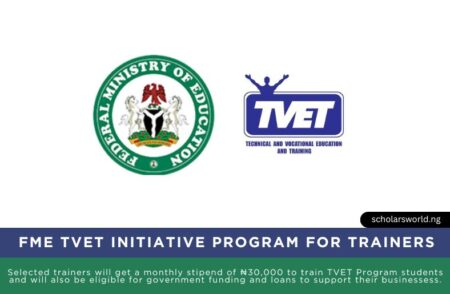Are you worried about incessant scholarship rejections?
Every year, more than 70% of applicants usually encounter scholarship rejections. This may be due to incomplete or uncompetitive applications, late or inappropriate submissions by applicants.
We are live on Twitter! Join our fast-growing community of scholars on X!@ngscholarsworld
— Scholars World (@ngscholarsworld) November 11, 2023
Kindly follow us, like, and share our posts to help reach a larger audience. #Scholarship #UK #EducationUSA
Students have come to a conclusion that scholarship or job letters or emails that begin with a “Thank you for applying to…” usually leave the applicant downcast. They are always rejection letters.
In this comprehensive guide, we will highlight the realm of scholarship application as well as the common causes of scholarship rejections.
Scholarship Applications: A Quick Run-Through
A scholarship application is your gateway to potential financial freedom and educational advancement. It is an opportunity to showcase how your goals align with the scholarship’s objectives.
However, it is not just about stating your aspirations; scholarship applications require you to convince the selection panel that you are the ideal candidate.
READ ALSO: Why you Should Apply for Scholarships
Scholarships do more than just fund your undergraduate or postgraduate studies; they’re a nod to your academic prowess and a stepping stone to greater opportunities.
They can lead to internships, valuable connections, and enhanced job prospects. We have seen this with Mastercard Foundation Scholarships for Africans to study all over the world and in the King’s Scholarship.
Winning a scholarship sets you apart, offering unique benefits like;
- full tuition coverage,
- monthly or annual living expenses,
- exclusive organization memberships,
- specialist networking opportunities, and
- additional academic support.
Why Do We Apply For Scholarships?
All over the world, candidates applying for scholarships as well as other opportunities seek to benefit the following;
Financial Relief for Educational Expenses: Scholarships offer a significant financial buffer, reducing or even eliminating the debt burden. They cover tuition, books, and sometimes even accommodation, without the repayment obligations of loans.
Enriched Educational Experience: Scholarships can open doors to more profound academic relationships and opportunities, such as internships and research projects, enhancing your overall educational journey.
Skill Development in Self-Promotion: Applying for scholarships hones your ability to market your strengths. Your essays and personal statements show your writing prowess while scholarship interviews prove to organizers of your confidence.
Building Resilience through Application: The process of applying for scholarships is itself a learning experience, teaching resilience and adaptability. Rejections teach you patience and the ability to retry and modify your applications.
- Gateway to Golden Opportunities: Applying for scholarships is an investment in your future. It’s a path to potential rewards that can shape your career and personal development.
Explore scholarship opportunities below.
10 Common Reasons for Scholarship Rejections
Eligibility Mismatch: Not meeting the scholarship’s specific criteria is a primary reason for rejection. Always thoroughly review the eligibility requirements before applying. Failure to meet just one of the eligibility requirements may result in automatic disqualification. Your application may not even be considered at all.
Substandard Essays: A poorly written essay can be a deal-breaker. Essays should be well-crafted, original, and free of errors. Check HERE to learn how to write scholarship essays.
Missing Deadlines: Overlooking application deadlines is a very grievous and costly error. Submit as early as possible to increase your chances. Set reminders if need be.
- Incomplete Applications: Thousands of other applicants are seeking the same scholarships as you. Every document you submit is graded and contributes to the success of your application. Make sure all details are accurately filled, all documents are appropriately uploaded (do not mix them up), and ensure you click the submit button.
Limiting Your Options: Don’t restrict yourself to just one or two scholarships. Broaden your horizons and apply for multiple opportunities. The more scholarships you apply for, the more your options for getting the awards.
Incorrect Contact Information: Providing wrong or incomplete contact details can mean missing out on a scholarship offer. Double-check all your information (email, phone number, social media handles) before submitting.
Grammatical Errors and Typos: An application riddled with errors reflects poorly on your attention to detail. Proofread meticulously. Read, re-read, and re-read. In fact, ask other people to help you go through.
Insufficient Details on Mailed Applications: When sending applications by mail, ensure adequate details and make sure you send them to the correct email address. If not, your application will not be received, while you are expecting feedback.
Presenting a Messy Application: First impressions matter. Submit clean, well-organized application materials. Make sure you snap clear copies of your passport, IDs, transcripts, and every other document to be uploaded.
Inappropriate Writing Style: Avoid extremes in writing style. Maintain a balance between formal and conversational tones. Be simple, do not tell or create scenarios that are too vague or impossible to believe.
- Falling Prey to Scams: Beware of fraudulent scholarship offers. Always verify the legitimacy of a scholarship before applying. Otherwise, your efforts may have been wasted.
Avoiding Scholarship Rejections
Understanding these common pitfalls is the first step in avoiding them. Approach your scholarship applications with care, thoroughness, and a keen eye for detail.
By doing so, you significantly increase your chances of not just avoiding rejection but also of winning the scholarship that could shape your future.
Remember, each application is a step towards your educational and career goals. Treat it with the respect and attention it deserves, and success might just be around the corner.















